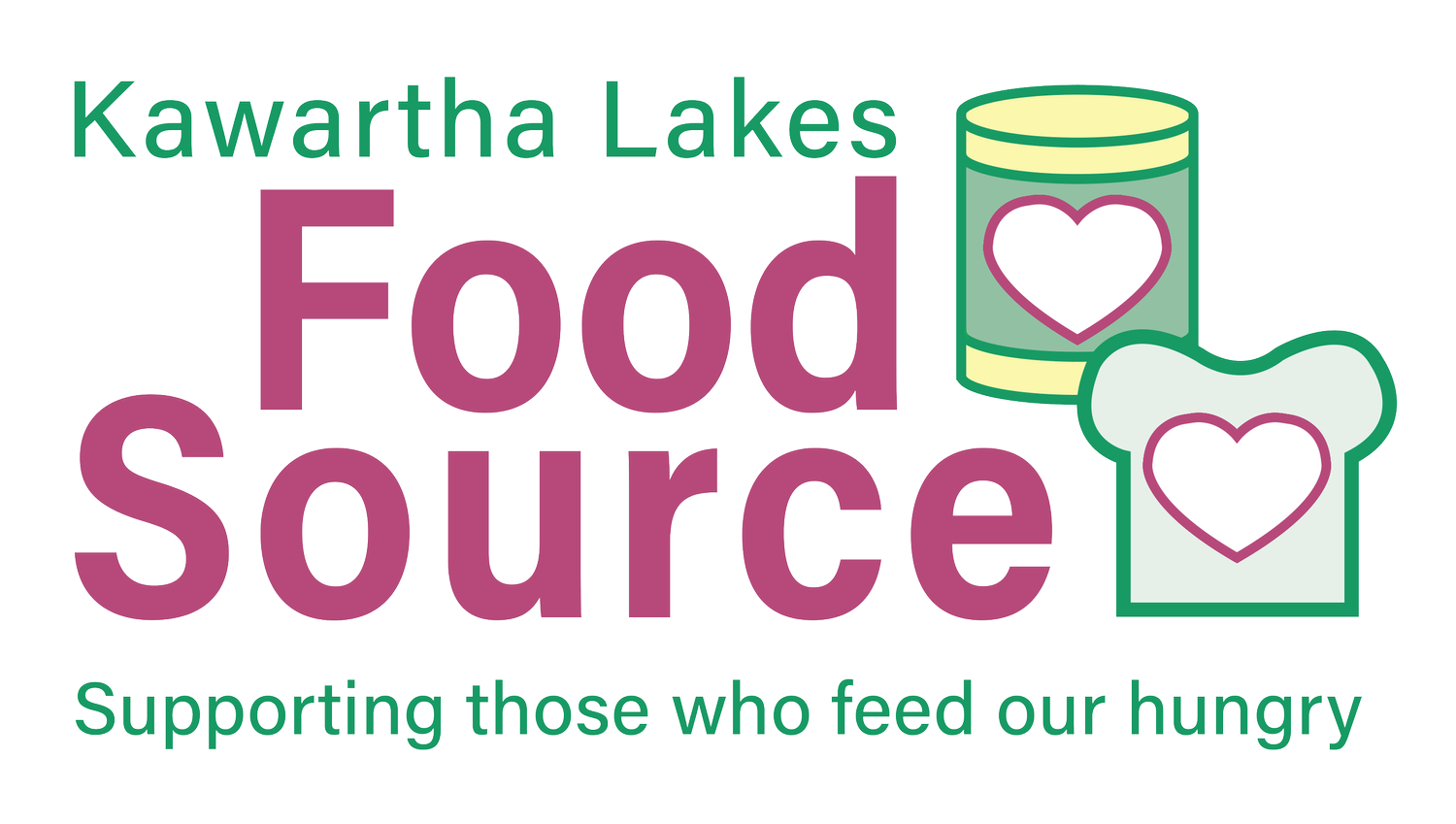FOOD BANKS ACROSS THE KAWARTHA LAKES REPORT NEARLY 800 NEW INDIVIDUALS WILL HAVE ACCESSED THEIR SERVICES IN 2020
(Lindsay – Tuesday December 1) 10 food banks across the Kawartha Lakes have served 758 new individuals so far this year, reports the Kawartha Lakes Food Source (KLFS). These new individuals are in addition to the 1,717 existing clients of these food banks.
The key driver for this increase in new clients? Poverty. COVID-19 has only compounded the extreme challenges already being faced by low-income community members and their ability to afford necessities – like rent, heat, hydro, transportation, and food – each month. Poverty in our community and across Ontario is a result of insufficient social assistance programs, unaffordable housing, precarious employment, and systemic racism and inequality.
At the Lindsay Community Food Market (LCFM), the food bank owned and operated by KLFS, 62% of their visitors are new, in comparison to the other 38% who had visited the food bank at least once prior to 2020.
One of the most significant challenges, in addition to COVID, that clients highlight during the intake process at LCFM is the lack of safe and affordable housing.
“Many clients indicate that they are frequently one to two months behind in their rent, have had to sacrifice purchasing food in order to pay rent or have seen an increase in their monthly rent though the conditions of their housing have significantly deteriorated or the housing has become overcrowded,” says Amelia Boyd, the LCFM Coordinator. “As we are well aware; safe, affordable housing is a determinant of ones overall health and wellbeing; when clients live in precarious housing situations they are at a greater risk of violence, illness and a lack of stability that is necessary for employment. Safe, affordable housing is critical in reducing poverty for the many clients that access our services at the Lindsay Community Food Market.”
On November 30, 2020 Feed Ontario, the provincial network of Ontario food banks, released their annual Hunger Report. This year’s report provides an analysis of data gathered by Feed Ontario’s network of 130 direct member food banks and 1,100 affiliate agencies leading up to the onset of the global pandemic. It also includes a special feature on the impacts of COVID-19 on food banks between Match 17th and September 1st.
Across Ontario, 86% of food bank visitors spend more than 50% of their monthly income on housing. Of these visitors, 1 in 2 is currently in fear of eviction or defaulting on their mortgage in the next 2-6 months.
While food banks are working tirelessly, the only way to solve poverty and food insecurity is through strong public policies that ensure that every Ontarian has access to the income needed for today’s cost of living. The Kawartha Lakes Food Source stands with the following recommendations made by Feed Ontario.
First, provide immediate income support to those impacted by COVID-19 by reinstating the Emergency Benefit for Social Assistance Recipients as well as immediate rent relief to low-income tenants facing rent arrears or eviction. Secondly, overhaul Ontario’s social assistance programs to ensure that recipients have the resources and means to move out of poverty. Third, invest in a strong workforce to ensure that working Ontarians can earn enough income to afford today’s cost of living. This would include developing labour laws and policies that benefit hard-working people through the reinstatement of paid sick days, equal pay for equal work, and quality jobs that provide a liveable wage.
While the year has been a challenging one to say the least, Heather Kirby, executive director of KLFS says that the Kawartha Lakes community has really stepped up to ensure that food banks have a consistent quality and quantity of food to give to those in need. “On behalf of our member food banks, and most importantly, those they serve, I would like to thank the community for your unwavering and continued support,” says Kirby. “All food banks within the City of Kawartha Lakes received food and financial donations to ensure they could continue to serve. I would also like to thank all volunteers and staff who operate the food banks for your passion and time to help others.”
That said, Kirby reiterates that “to reduce poverty and hunger at home, and across the country, we need a combination of a strong economy and smart social policy.”
To access the full 2020 Hunger Report from Feed Ontario, please visit their website.

